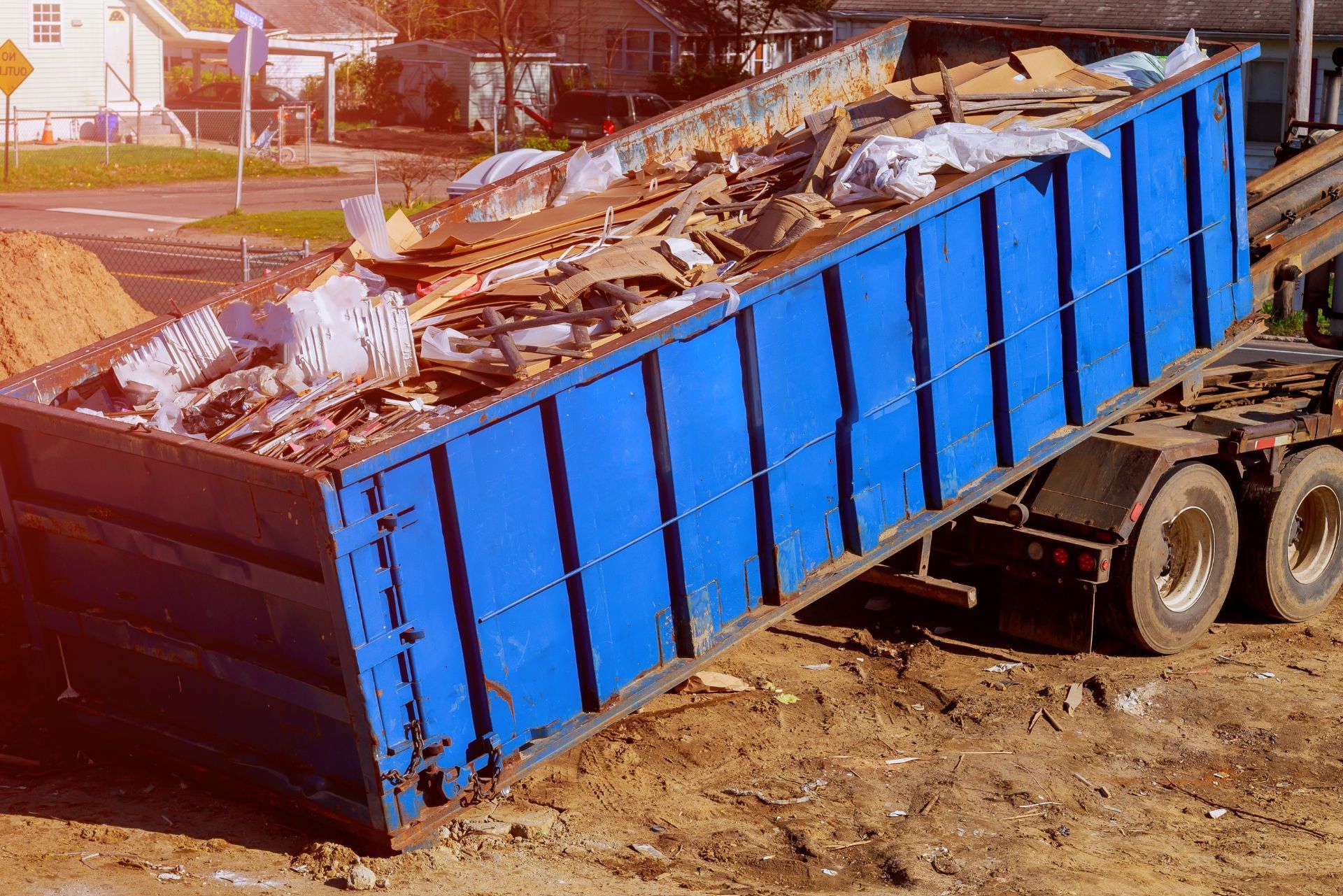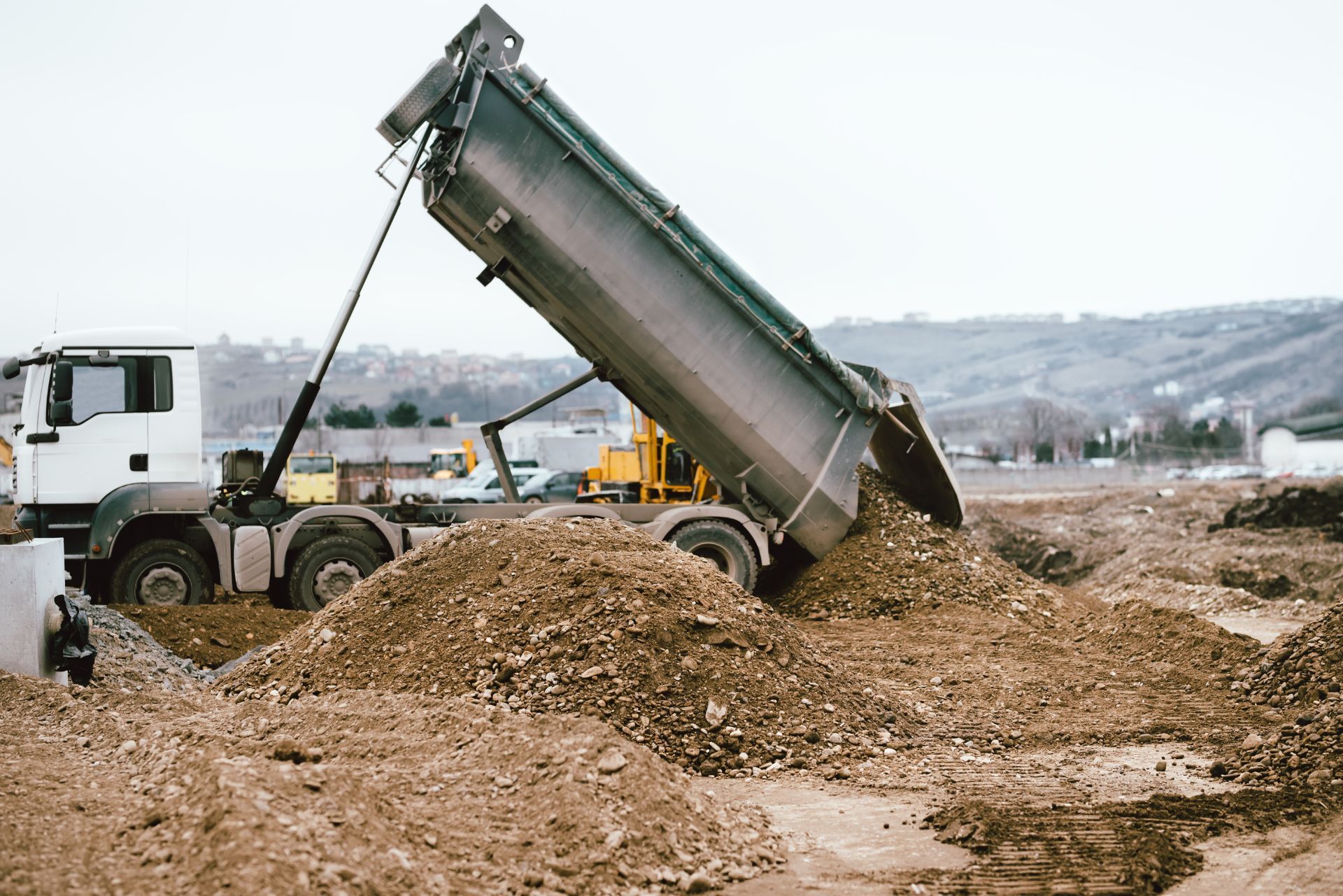When it comes to owning a dump trailer in Florida, understanding the insurance requirements is crucial. Dump trailers are versatile tools used in various industries, including construction, landscaping, and waste management. However, like any vehicle, they come with their own set of risks. This article will provide comprehensive information on dump trailer insurance in Florida, covering everything from basic coverage options to specific state regulations.
Understanding Dump Trailers
Dump trailers are specialized trailers designed to transport materials and debris. They are equipped with hydraulic lifts that allow the bed to tilt, making unloading easier and more efficient. These trailers are commonly used by contractors, landscapers, and homeowners for various projects, from hauling dirt to transporting heavy equipment. The versatility of dump trailers makes them an invaluable asset in construction, landscaping, and even agricultural settings, where the need to move bulk materials quickly and efficiently is paramount.
Given their utility, it's essential to ensure that these trailers are adequately insured. Without proper coverage, owners may face significant financial losses in the event of an accident or theft. Additionally, understanding the specific insurance needs based on the type of materials being transported can help in selecting the right policy. For instance, transporting hazardous materials may require specialized coverage, emphasizing the importance of consulting with an insurance professional to tailor a policy that meets individual needs.
Types of Dump Trailers
Dump trailers come in various sizes and configurations, catering to different needs. Some common types include:
- Single Axle Dump Trailers: Ideal for light to medium loads, these trailers are easier to maneuver and are often used for residential projects. Their compact size makes them perfect for tight spaces, such as driveways and backyards, where larger trailers might struggle to navigate.
- Tandem Axle Dump Trailers: Designed for heavier loads, these trailers provide better stability and are commonly used in commercial applications. The dual axles distribute weight more evenly, allowing for safer transport of larger quantities of materials, such as gravel or construction debris.
- Gooseneck Dump Trailers: These trailers attach to a gooseneck hitch, providing increased towing capacity and stability for larger loads. Their design allows for a tighter turning radius, making them suitable for more complex job sites where maneuverability is crucial.
In addition to these standard types, dump trailers can also be customized with various features to enhance their functionality. For instance, some models come with side extensions that increase the height of the trailer bed, allowing for the transport of bulkier materials. Others might include additional safety features, such as built-in ramps for easy loading and unloading of equipment, or reinforced frames to handle more demanding tasks. The choice of materials used in the construction of the trailer, such as aluminum versus steel, can also impact durability and weight, further influencing the decision-making process for potential buyers.

Why Insurance is Necessary
Insurance for dump trailers is not just a legal requirement; it’s also a safety net that protects owners from unforeseen circumstances. The nature of dump trailers means they are often exposed to various risks, including accidents, theft, and damage from harsh weather conditions. These trailers are frequently used in construction, landscaping, and waste management, which inherently involve heavy loads and challenging environments. As a result, the potential for accidents increases significantly, making insurance an essential consideration for any owner.
Without insurance, the financial burden of repairs, replacements, or liability claims can be overwhelming. For businesses, this could mean the difference between staying operational or facing bankruptcy. Imagine a scenario where a dump trailer is involved in an accident, causing damage to property or injury to individuals. The costs associated with such incidents can escalate quickly, leading to legal fees, medical expenses, and compensation claims that could cripple a business lacking adequate coverage. Moreover, the peace of mind that comes with knowing you are protected allows owners to focus on their work rather than worrying about potential financial fallout.
Legal Requirements in Florida
In Florida, there are specific legal requirements regarding insurance for trailers. While dump trailers may not require separate registration like motor vehicles, having liability insurance is highly recommended. This coverage helps protect against damages caused to others in the event of an accident. Additionally, many contractors and businesses may find that clients or partners require proof of insurance before entering into contracts, making it not only a legal necessity but also a practical one for maintaining business relationships.
Florida law requires that all motor vehicles, including those towing trailers, carry a minimum amount of liability coverage. This includes bodily injury and property damage liability. For dump trailer owners, understanding these requirements is essential to avoid fines and legal issues. Furthermore, it’s worth noting that while the minimum coverage may suffice for legal compliance, it often does not provide adequate protection for the true value of the trailer and its contents. Many owners opt for additional coverage options, such as comprehensive and collision insurance, to ensure they are fully protected against a wider range of incidents, including theft and natural disasters. This proactive approach not only safeguards their investment but also enhances their credibility in the industry, as clients often prefer to work with insured professionals.
Types of Coverage Available
When it comes to insuring a dump trailer, there are several types of coverage options available. Each type serves a different purpose and can be tailored to meet the specific needs of the owner.
Liability Insurance
Liability insurance is the most basic form of coverage and is typically required by law. It covers damages and injuries caused to third parties in the event of an accident. This type of insurance is crucial for protecting the owner from costly lawsuits and claims.
In Florida, the minimum required liability limits are $10,000 for bodily injury per person, $20,000 for total bodily injury per accident, and $10,000 for property damage. However, many experts recommend higher limits to ensure adequate protection. It's important for owners to consider the potential costs associated with accidents, as medical expenses and property damage can quickly exceed these minimum thresholds, leaving the owner vulnerable to financial strain.
Comprehensive Coverage
Comprehensive coverage protects against non-collision-related incidents, such as theft, vandalism, or natural disasters. For dump trailer owners, this type of coverage can be invaluable, especially if the trailer is stored in unsecured areas or used frequently in unpredictable environments.
This coverage helps ensure that, in the event of a loss, the owner can recover the value of the trailer without incurring significant out-of-pocket expenses. Additionally, comprehensive coverage can also extend to damages caused by falling objects or fire, providing a broader safety net for owners who may face various risks. Understanding the specific threats in their area can help owners make informed decisions about the level of comprehensive coverage they should secure.
Collision Coverage
Collision coverage is designed to cover damages to the dump trailer resulting from a collision with another vehicle or object. This type of insurance is particularly important for those who frequently use their trailers on busy job sites or public roads.
Collision coverage can help pay for repairs or replacement costs, depending on the severity of the accident. It is essential for owners to assess their usage patterns to determine if this coverage is necessary. For instance, those who transport heavy loads or navigate through tight spaces may be at a higher risk of accidents, making collision coverage a wise investment. Furthermore, many insurance providers offer options to customize collision coverage, such as choosing a deductible that aligns with the owner's budget and risk tolerance, allowing for more tailored protection.
Factors Affecting Dump Trailer Insurance Rates
Several factors can influence the cost of dump trailer insurance in Florida. Understanding these factors can help owners make informed decisions when selecting coverage.
Trailer Value
The value of the dump trailer plays a significant role in determining insurance rates. More expensive trailers typically come with higher premiums due to the increased risk for the insurer. Owners should consider the market value of their trailer when seeking quotes. Additionally, it's worth noting that the age and condition of the trailer can also impact its value. Newer models equipped with advanced safety features may qualify for discounts, while older trailers may require more frequent repairs, potentially increasing the risk for insurers.
Usage and Mileage
How often and for what purpose the trailer is used can also impact insurance costs. Trailers used for commercial purposes or transported over long distances may incur higher rates compared to those used infrequently for personal projects. Furthermore, the type of cargo being transported can also be a factor; for instance, hauling heavy construction materials might be seen as riskier than transporting lighter loads. Insurance companies often assess the intended use of the trailer, so providing accurate information is crucial for obtaining the best rates. Owners should keep detailed records of their trailer's usage to help justify their insurance needs.
Driving History
The driving history of the individual towing the trailer can affect insurance premiums. A clean driving record with no accidents or violations typically results in lower rates, while a history of accidents or claims can lead to higher premiums. Insurance providers may also consider the experience level of the driver, as more experienced operators may be viewed as lower risk. In addition, some insurers may offer incentives for completing safety courses or training programs, which can further reduce costs. It's beneficial for drivers to maintain good habits and stay informed about safe towing practices to not only protect themselves but also potentially lower their insurance rates.
Location
The geographical location where the trailer is primarily stored or used can also play a significant role in determining insurance rates. Areas with higher crime rates or more frequent severe weather events may lead to increased premiums due to the higher likelihood of theft or damage. For instance, urban environments might pose a greater risk for accidents compared to rural areas, where traffic is generally lighter. Owners should consider these factors when assessing their insurance needs and may want to explore options for secure storage solutions to mitigate risks and potentially lower their premiums.
Insurance Coverage Options
The type of coverage selected can significantly affect the overall cost of dump trailer insurance. Basic liability coverage may be more affordable but offers limited protection, while comprehensive and collision coverage can provide more extensive safeguards against a variety of risks, including theft, vandalism, and damage from accidents. Additionally, owners may want to consider optional coverages, such as roadside assistance or rental reimbursement, which can enhance their policy but may also increase the premium. It's essential for trailer owners to evaluate their specific needs and budget when determining the right mix of coverage to ensure they are adequately protected without overpaying.

How to Choose the Right Insurance Provider
Choosing the right insurance provider for a dump trailer can be a daunting task. With numerous options available, it’s essential to conduct thorough research to find the best fit.
Compare Quotes
One of the most effective ways to ensure you’re getting the best deal is to compare quotes from multiple insurance providers. This allows owners to see the differences in coverage options, limits, and premiums. Online comparison tools can simplify this process, making it easier to find competitive rates.
Check Reviews and Ratings
Before selecting an insurance provider, it’s advisable to check customer reviews and ratings. Feedback from other dump trailer owners can provide valuable insights into the insurer’s reliability, customer service, and claims process.
Look for providers with a strong reputation for handling claims efficiently and providing excellent customer support.
Assess Coverage Options
Not all insurance policies are created equal. It’s essential to assess the coverage options provided by each insurer. Ensure that the policy includes the necessary types of coverage, such as liability, comprehensive, and collision, and that the limits meet your needs.
Additionally, inquire about any add-ons or endorsements that may be beneficial, such as coverage for rental trailers or roadside assistance.
Common Exclusions in Dump Trailer Insurance
Understanding what is not covered by dump trailer insurance is just as important as knowing what is included. Common exclusions can leave owners vulnerable if they are not aware of them.
Wear and Tear
Most insurance policies do not cover damages resulting from normal wear and tear. This means that routine maintenance issues, such as tire replacements or brake repairs, will typically not be covered. Owners should ensure that they maintain their trailers properly to avoid these issues.
Intentional Damage
Insurance policies generally exclude coverage for damages caused intentionally. If an owner or driver is found to have caused damage on purpose, the insurer will likely deny any claims related to that incident.
It’s crucial to operate trailers responsibly and ethically to avoid complications with claims.
Unlicensed Drivers
If an unlicensed driver is involved in an accident while towing the dump trailer, the insurance policy may not cover the damages. It’s essential to ensure that anyone operating the trailer has a valid driver’s license and is legally allowed to tow.
Tips for Reducing Insurance Costs
Bundle Policies
Many insurance providers offer discounts for bundling multiple policies, such as auto and trailer insurance. By consolidating coverage with one provider, owners can often save money on premiums.
Increase Deductibles
Increasing the deductible on an insurance policy can lead to lower monthly premiums. However, owners should ensure they can afford the higher deductible in the event of a claim.
It’s a balancing act between lower premiums and the potential out-of-pocket costs if an accident occurs.
Take a Defensive Driving Course
Some insurance companies offer discounts for completing a defensive driving course. These courses not only improve driving skills but also demonstrate to insurers that the driver is committed to safety.
Check with the insurance provider to see if such discounts are available.
Conclusion
Dump trailer insurance is a vital aspect of ownership that ensures financial protection against various risks. Understanding the types of coverage available, the factors that influence insurance rates, and the importance of choosing the right provider can help owners make informed decisions.
By taking the time to research and compare options, dump trailer owners in Florida can secure the coverage they need at a price that fits their budget. Whether used for personal projects or commercial purposes, having the right insurance can provide peace of mind and protect against unexpected events.
As regulations and insurance requirements may change, staying informed is crucial. Regularly reviewing insurance policies and coverage needs can help ensure that owners are adequately protected as their circumstances evolve.

Contact Us


